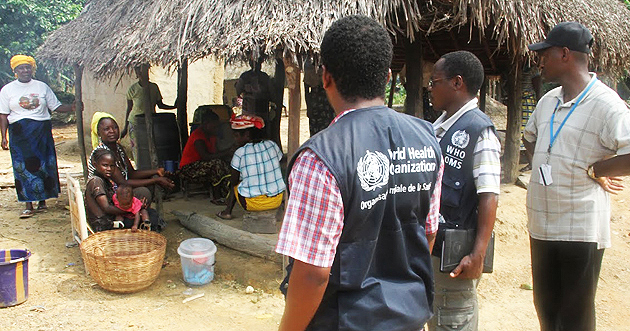The warnings the world did not heed
One year into the Ebola epidemic. January 2015
A formal assessment of the response to the 2009 H1N1 influenza pandemic concluded that the world was lucky on that occasion, as the virus was so mild, but ill-prepared to cope with any severe and sustained emergencies in the future, as borne out by the Ebola epidemic.

CHAPTER 13 - In 2010, a review committee was convened under the provisions of the Internal Health Regulations to evaluate the response to the 2009 H1N1 influenza pandemic and assess the level of global preparedness for similar events in the future. As the committee concluded, “The world is ill-prepared to respond to a severe influenza pandemic or to any similarly global and threatening public-health emergency.”
Beyond implementation of core public-health capacities called for in the IHR, the committee expressed the view that global preparedness can be advanced through research, reliance on a multisectoral approach, strengthened health-care delivery systems, economic development in low and middle-income countries, and improved health status.
The committee noted that the WHO response to public health emergencies was framed by the Organization’s “dual role as a moral voice for health in the world and as a servant of its Member States.” It observed the limitation of WHO systems that were designed to respond to a geographically focal, short-term emergency, rather than a global, sustained, long-term event. The Ebola epidemic has been just such an event.
Needs: an army of reinforcements, a war chest, and modern weapons
As soon as the outbreak was confirmed on March 21, we started to work with the Ministry of Health and other partners to implement necessary measures. It is the first time the country is facing an Ebola outbreak, so WHO expertise in the area is valuable.
The committee’s recommendations for strengthened preparedness included calls for the establishment of a more extensive global public health reserve workforce that could be mobilized as part of a sustained emergency response, the creation of
a contingency fund for public health emergencies to support surge capacity, and pursuit of a comprehensive research and evaluation programme. The committee noted that these needs could not be met by WHO acting alone and required collaboration
with the international community.
As the Ebola outbreak has revealed, the world did not respond to these recommendations, with none of these measures fully in place to support a response that could last for many more months to come. Furthermore, in November 2014, an IHR review committee found that only 64 of WHO’s 194 Member States had the essential surveillance, laboratory, data management, and other capacities in place to fulfil their obligations under the IHR.
As a result, WHO went into battle against this virus with no army of reinforcements to support a sustained response, no war chest to fund a surge, and weapons that date back to the Middle Ages.
Thanks to the generosity of the international community, the dedication of scientists, and the ingenuity of the pharmaceutical industry, solutions to two of these problems have a good chance of being found. Reinforcements are badly needed. Finding more experienced field epidemiologists and foreign medical teams to manage the newly built and planned treatment centres, and getting those centres and staff closer to where they are needed most, remain major challenges.
What needs to change
On 25 January 2015, the WHO Executive Board will hold a special session to discuss the Ebola epidemic and what needs to be done to bring it under control. To guide these discussions, WHO staff prepared six background papers, including proposals for changing the systems and structures used by WHO when it responds to emergencies.
In connection with a reform process currently under way at WHO, Executive Board members will consider the extent to which WHO is expected to be operational in the field during extended emergencies, with its staff directly coordinating or supervising the response, or whether the WHO role should be confined to technical guidance and advice. Both functions – providing technical assistance and direct aid are constitutionally mandated. The Board will also consider administrative and managerial arrangements between WHO headquarters and its six regional offices.
